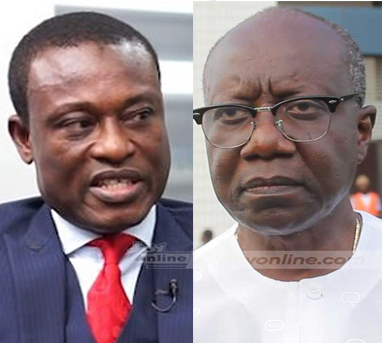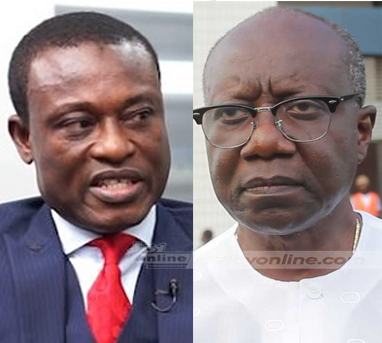
Private legal practitioner and journalist Samson Lardy Anyenini says no individual, no matter how powerful, can be placed above the laws of the Republic.
Reacting to recent public discussions following the Office of the Special Prosecutor’s declaration of a former finance minister as wanted and placing him on INTERPOL’s red list, he rejected suggestions that the trial could or should proceed in his absence.
“Arrest, detention, and restriction are globally accepted means of enforcing law and order,” he stated. “When you offend or breach public law, you encounter the Republic.”
He said the law is not a matter for personal discretion or private negotiation.
“It is not a private legal matter left to two individuals to decide how to remedy a breach of contract,” he wrote.
Mr Anyenini made clear that in every functioning legal system, there is a clear and established procedure for dealing with criminal conduct.
“The law does not allow me the option to hit and run, nor does it permit charges to be filed in my absence, never in the first instance,” he argued.
He drew parallels with basic offences to drive home his point. “If I break a traffic regulation, hit and kill someone, the Republic deals with me,” he said.
“If I am fortunate enough not to have harmed anyone in the process, the Republic may restrict my driving, require me to attend a refresher course, or undergo counselling—all in the interest of protecting others.”
The host of Newsfile was emphatic that public safety demands due process.
“If I threaten, assault my neighbours, or engage in acts that endanger them, including environmental and economic crimes such as illegal mining and corruption, the State will not allow me to roam freely,” he said.
“We do not live in a jungle where the strongest survive.”
He warned against mob justice or emotional responses to criminal matters. “My neighbours must not resort to vigilante justice—stoning my house or car, or attempting to kill me simply because they can.”
Instead, he stressed the role of structured law enforcement. “The proper course of action is for me to be arrested, detained, or restricted by the police, always under the supervision of a court,” he wrote.
He explained that due process is key to justice. “In an orderly society, I will first be treated as a suspect, then as an accused person who is formally charged,” he said.
“The police or the court may grant me bail (which is a form of restriction) and allow me the opportunity to prove my innocence if my accusers fail to prove my guilt.”
He dismissed any legal foundation for starting criminal trials without the accused person present. “We do not commence criminal proceedings with a trial in absentia,” he said flatly.
“Personal attendance in criminal trials is never automatically dispensed with in Ghana or anywhere else.”
He underscored that the rule of law does not permit shortcuts or selective application.
“At the very least, arrest warrants, criminal summons, bail, and the issuance of bench warrants (during trials) serve as mechanisms to uphold this requirement.”
He maintained that courtrooms, not press releases or social media, are the place for justice. “A person charged must enter a plea—guilty or not guilty—only in court,” he emphasised.
“If the offence is a very minor one, one for the highest custodial sentence is just three months, the court (never the accused) has the discretion to allow a written plea or representation through a lawyer.”
He described the idea of allowing a fugitive to be tried in his absence as a betrayal of legal principles.
“Legal systems exist to ensure justice is served,” he said. “Mechanisms like INTERPOL are in place to prevent fugitives from escaping accountability.”
Mr Anyenini closed with a reminder of the stakes. “Society fails in its duty when individuals accused of taking another’s life are given the option to be tried in their absence, convicted only on paper, yet remain free in reality.”
“To order society properly, we must uphold due process, ensure fairness in legal proceedings, and prevent injustice from prevailing,” he concluded. “No one is above the Republic.”
DISCLAIMER: The Views, Comments, Opinions, Contributions and Statements made by Readers and Contributors on this platform do not necessarily represent the views or policy of Multimedia Group Limited.
DISCLAIMER: The Views, Comments, Opinions, Contributions and Statements made by Readers and Contributors on this platform do not necessarily represent the views or policy of Multimedia Group Limited.
- President Commissions 36.5 Million Dollars Hospital In The Tain District
- You Will Not Go Free For Killing An Hard Working MP – Akufo-Addo To MP’s Killer
- I Will Lead You To Victory – Ato Forson Assures NDC Supporters
Visit Our Social Media for More




